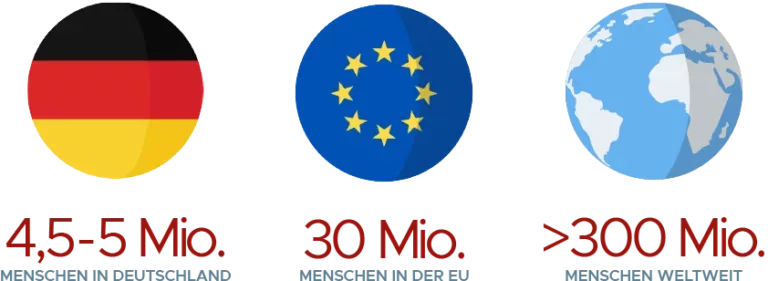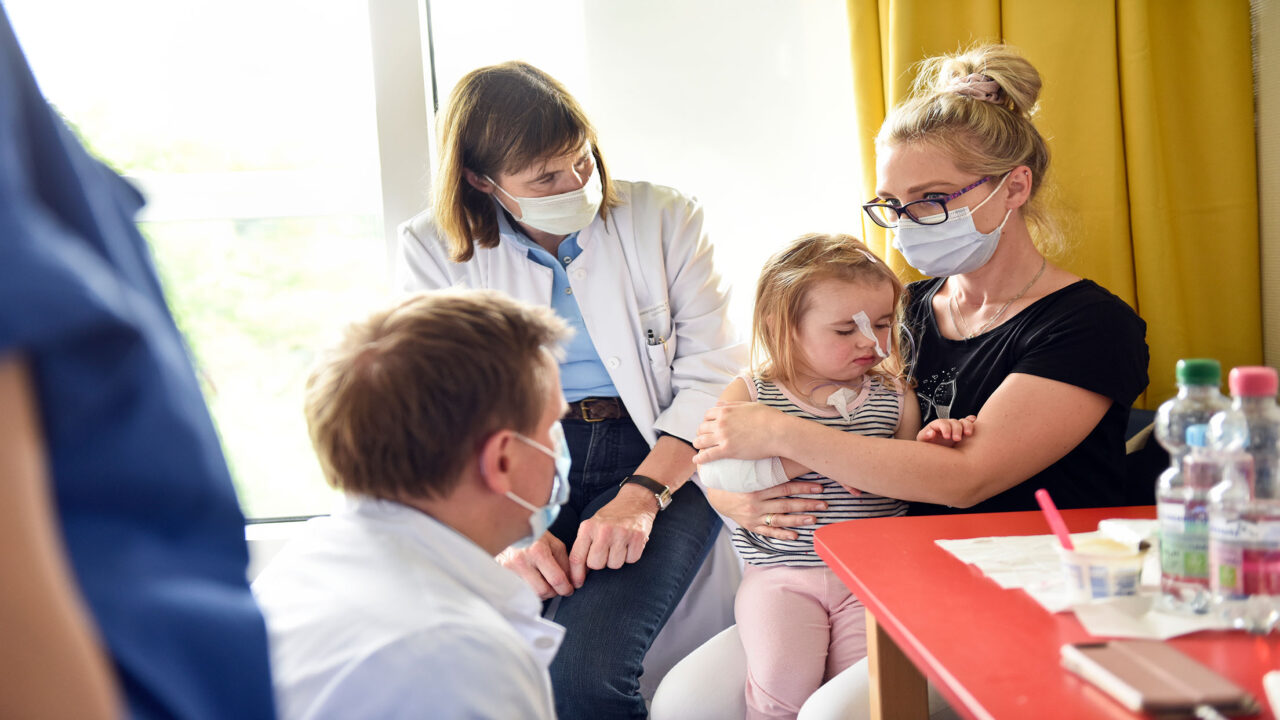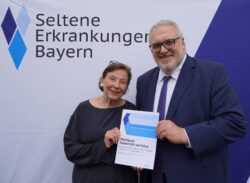Creating awareness about prevalence and variation

The rare are many. Experts estimate that up to 250 new rare diseases are discovered every year. These diseases reveal the processes that take place in the human body and the tiny adjustments that can make the difference between health and disease. This knowledge can save the lives, and ultimately benefits everyone, because research into rare diseases can help revolutionize the “medicine of tomorrow”.

What are rare diseases?
Rare diseases, also known as orphan diseases, are classified as such in many countries when they affect no more than 1 in 2,000 to 1 in 5,000 people. This can vary depending on the region or healthcare system. In the EU, a disease is considered “rare” if it affects no more than 1 in 2,000 people.
It is estimated that there are six to ten thousand rare diseases. The trend is rising due to advanced diagnostics – which also applies to the number of people affected. The diseases can be genetic, infectious or environmental in nature. Many rare diseases begin in childhood, some develop later. They are often life-threatening or chronic and have a significant impact on the quality of life of those affected.

How many people are affected by rare diseases?
Each individual disease may be rare in itself, but rare diseases as a whole affect a significant number of people worldwide. As rare diseases are often unrecognized or misdiagnosed, it is very likely that the actual number of people affected is even higher. Furthermore, the impact of a rare disease affects not only the patients themselves, but also their families, caregivers and society as a whole, as these diseases are often associated with high levels of stress and special challenges.

Did you know, that...

How can research save lives of those suffering from rare diseases?
The vast majority of rare diseases are virtually unexplored, which is why treatment options are generally limited to the treatment of symptoms. Curative treatment approaches and specific drugs are absolute exceptions. These are also known as orphan drugs because they are intended for the proverbial “orphans of medicine.”
First hand account
However, the story of the Bopp family shows what research can achieve. Within the space of a few weeks, the previously bright three-year-old lost everything he had learned up to that point. A pediatrician discovered that Sebastian was suffering from a rare genetic defect and developed a successful therapy. It allows his sisters, who are also affected, to grow up without symptoms and gives Sebastian a piece of his old life back.

From rare to common – why do rare diseases affect us all?
Anyone who understands the mechanisms behind a rare disease can often deduce the causes of common conditions such as obesity, heart failure and bone diseases. Leading scientists are convinced that research into rare diseases will pave the way for the personalized precision medicine of tomorrow.
This is also reflected in the fact that modern diagnostics are increasingly defining subtypes of common diseases that are formally considered rare.

You are currently viewing a placeholder content from Youtube. To access the actual content, click the button below. Please note that doing so will share data with third-party providers.
More InformationNewsletter Subscription
Our free newsletter informs you about current calls for proposals, events and projects concerning rare diseases.

Support the orphans of medicine!
ELHKS uses your donations in a targeted manner – so that medical progress reaches everyone.
-

Events
Making Commitment Visible: Eva Luise Köhler at the Rare Diseases Bavaria Midsummer Reception
At the summer reception of the “Rare Diseases Bavaria” campaign, Eva Luise Köhler appealed for solidarity with people with rare diseases. Her plea and the presentation of the campaign's white…
-

Alliance4Rare
Alliance4Rare call for proposals: Junior Clinician Scientists for Rare (JCS4Rare)
The Alliance4Rare offers Junior Clinician Scientists for Rare (JCS4Rare) a structured specialist training program that enables prospective pediatricians and human geneticists with a clearly recognizable scientific interest in rare diseases…
-

Alliance4Rare
Two years Alliance4Rare: pioneering work for research into rare diseases
Research gives hope to the youngest: At the two-year anniversary of the Alliance4Rare research initiative, scientific director Prof. Dr. Annette Grüters-Kieslich reports on the successes, challenges and goals of the…